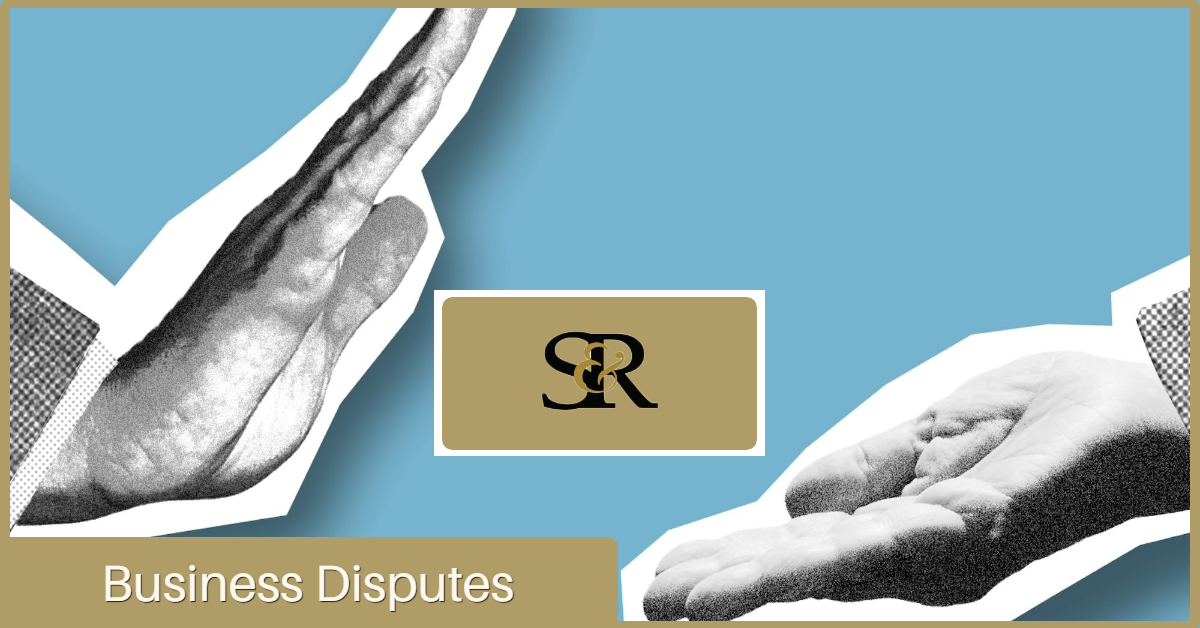Business Disputes
How Business Partners Manage Differences

Need help?
For general inquiries, please click the button below to contact us via email.Contact Us
The principals in businesses (we’ll call them “partners” for this discussion) will inevitably have different views of how business should be conducted within the company and with customers, vendors, and others in their company orbit. As business lawyers, we are sometimes called upon to assist in working through business disputes. In today’s post we discuss a critical component of business law - resolving differences between or among the business partners.
The Gentle Art of Debate
Remembering that an ounce of acrimony can poison a barrel of business discussions, it might be useful to review what the ancient wisemen of Western civilization thought about how disagreements should be managed. Here is the advice Socrates and his student, Plato, gave to the Democratic Assembly in Athens, (circa 404 B.C.E.) where citizens learned the gentle art of debate, the ability to marshal arguments logically and effectively, and the process of resolution of disputes through the gentle art of dialog.
Make a Place for Your Partner in Your Mind
Socrates cautioned against “clever and disputatious debaters” and suggested that in true dialog, participants “must answer in a manner more gentle and more proper to discussion.” His student, Plato, went on to describe dialog as “communal mediation” and suggested that “true dialog” was hard work, but must be conducted in a kindly, compassionate manner. According to Plato, such dialog could not produce transcendent insight unless “questions and answers are exchanged in good faith and without malice.” Nobody must be pushed into a position about which he felt uncomfortable, and each participant should “make a place for the other in his mind,” listening intently and sympathetically to the ideas of his partners in dialog and allowing them to “unsettle their own convictions.”
True Dialog Balances Candor and Discipline
Being a partner in a business requires that one find the appropriate balance of candor and discipline, as well as kindness and consideration for one another through this process of dialog. Beneath the partner discussions there should be three different vantage points on the problems and opportunities the business faces:
Viewed through this lens, business partners can make broad and forward-leaning decisions in good times and can close ranks and provide each other with mutual assistance in hard times. When business partners fail to grow in these ways, the business can find itself like a ship in a storm near the shoals. When partners engage in contentious one-upmanship, or pursue a narrow self-advantage over everything else, the business will suffer. If the climate is not improved, the best employees will gradually migrate out of the company and a culture of acrimony will develop subtly, corroding good will.
Finding the Future
The job of the leader in a company is “to find the future.” Problems that could lead to partnership disputes can be identified, addressed and resolved. At Seale & Ross, PLC, we have decades of experience in helping business owners find the future.
Jay Seale
Founding Partner
Seale & Ross, PLC
About the Author

T. Jay Seale, III is a founding partner of Seale & Ross, PLC. Mr. Seale is a Louisiana native, and has made his life in Hammond for most of his adult years. He obtained his Juris Doctor degree from LSU’s Paul M. Hebert Law School in 1973 and began his practice in Hammond in October of that year. Seale & Ross, PLC has offices in Hammond, LA and Madisonville, LA.
